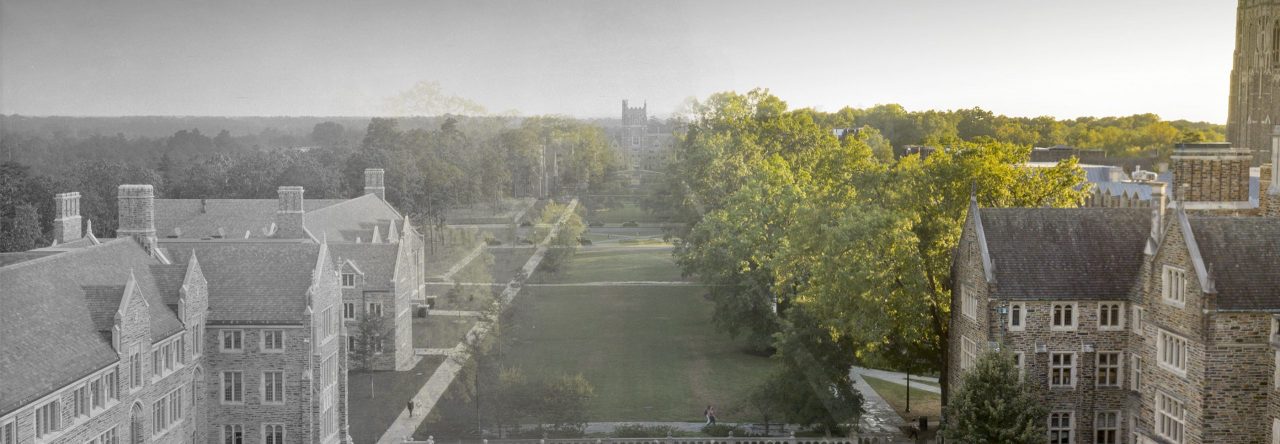One of the long-standing traditions of Trinity College and Duke University is the observance of honoring the benefactors of the institution. The practice was formalized by the Board of Trustees on June 4, 1901, when October 3 was designated as Benefactors’ Day in honor of Washington Duke. In 1926, its name was changed to Duke University Day, and, since 1948, it has been called Founders’ Day.
Although the name has changed over the years, the original intent of honoring the visionaries of the university remains and we celebrate those who carry on the legacy of Duke University and its tradition of excellence.
2025 University Medals for Distinguished Meritorious Service
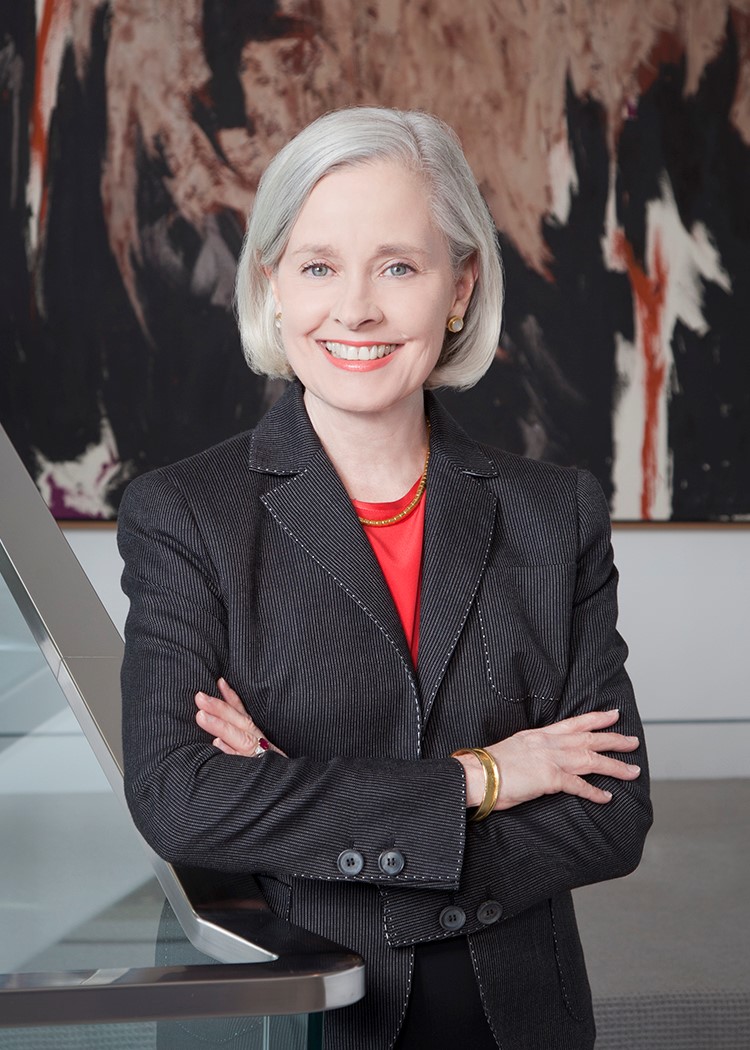
Anne T. Bass
Through her visionary leadership and philanthropy, Anne T. Bass has made a profound impact at Duke, particularly on the university’s distinctive approach to interdisciplinary education.
Bass and her husband, Robert M. Bass, were the founding donors for Bass Connections and the Bass Society of Fellows. Launched in 2013, Bass Connections promotes innovative collaborative research projects and has become a national model for interdisciplinary, experiential education. Through the program, more than 5,000 students from the undergraduate and graduate levels, working across disciplines, have engaged in more than 1,000 wide-ranging research endeavors exploring complex societal challenges.
The Bass Society of Fellows was established in 1996 and provides funding for Duke faculty members who have achieved “true excellence in both research and teaching and are good university citizens” to receive a named chair title for a five-year term and lifetime membership as a fellow. Since 1996, 165 faculty members have been honored as fellows of the society, which cultivates a cross-disciplinary intellectual community where fellows share their innovative approaches and experiences centered on strong faculty-student interaction.
From 2003 until 2015, Bass served on the university’s Board of Trustees, including as chair of the Institutional Advancement and Medical Center Academic Affairs Committees. She also co-chaired the Duke Forward campaign that was launched in 2013 and raised $3.85 billion in support of university priorities, including financial aid, faculty development, research and patient care, and hands-on learning opportunities for students.
In addition to her service to the university, Bass is a Duke parent. Her son Christopher graduated from Trinity College of Arts & Sciences in 1997.
Beyond Duke, Bass served on a variety of boards, including those of the Brite Divinity School at Texas Christian University, and the Lucile Salter Packard Children’s Hospital at Stanford University and at her alma mater, Smith College. She has also chaired the boards of Texas Health Resources and Texas Ballet Theater.

Tallman Trask III
In 1995, Duke President Nan Keohane recruited Tallman Trask to serve as Duke’s executive vice president, the university’s chief administrative and financial officer. For the next 25 years, Trask oversaw many of the university’s essential services and programs. His tenure significantly shaped Duke’s financial health, physical campus and organizational operations as the university approached its Centennial.
Under Trask’s leadership, a campus master plan developed in 1997 established the framework for the most significant period of construction at Duke since the campus was originally built. The West Union Building (now the Brodhead Center), Baldwin Auditorium, Perkins Library and Duke Chapel were all renovated. Newly constructed buildings included the Karsh Alumni and Visitors Center, Nasher Museum of Art, Student Wellness Center, Penn Pavilion and Rubenstein Arts Center.
Bell Tower and Trinity House residence halls on East Campus were built, while on West Campus both the Hollows and Keohane quads were opened. Duke Athletics facilities, including Cameron Indoor Stadium, Wallace Wade Stadium and Koskinen Stadium, were revitalized, and the Duke Softball Stadium was constructed on East Campus. In 2003, Trask was elected as an honorary member of the American Institute of Architects.
Trask stewarded the university’s finances through an era of considerable growth and development as well as through challenging periods, including the Great Recession of 2008 and the outbreak of the COVID-19 pandemic in 2020. He introduced new approaches to financial planning and took measures to protect the university’s financial health on a long-term basis. During Trask’s tenure, Duke’s endowment grew from $700 million to $11 billion.
He also oversaw the modernization of Duke’s information technology infrastructure and championed the 2009 campus Climate Action Plan.
Trask worked closely with Durham business and civic leaders to support local economic development and the revitalization of downtown Durham. He spearheaded Duke’s partnership in the development of the Durham Performing Arts Center, which opened in 2008, and the university’s involvement in a public-private collaboration that contributed to the successful renewal of the American Tobacco Campus. The two developments and Duke’s workforce presence helped spark a renaissance in downtown Durham during the 2010s.
Trask also held a faculty appointment as adjunct professor in Duke’s Program in Education and served on the Research Triangle Foundation Board of Directors. He retired from Duke in November 2020.
Distinguished Alumni Award
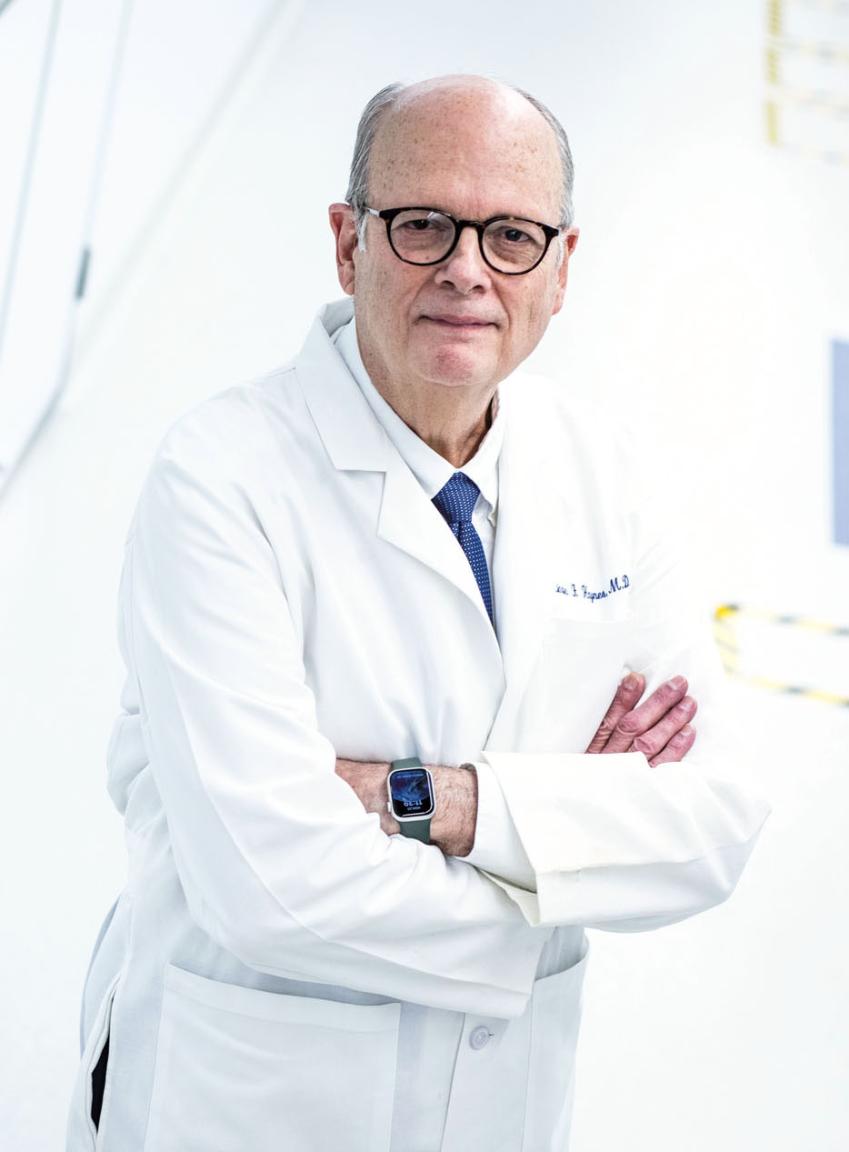
Barton F. Haynes, M.D
Barton F. Haynes, M.D. is the Frederic M. Hanes Professor of Medicine, and Director of the Human Vaccine Institute in the Duke University School of Medicine. In the 1980s, he teamed with Louise Markert at Duke to develop human thymic transplantation as a curative treatment for the disease of children born without a thymus, called congenital athymia or DiGeorge Syndrome. Since 1990 he has been the founding Director of the Duke Human Vaccine Institute and since 2005, the leader of the Center for HIV/AIDS Vaccine Immunology team to develop an AIDS vaccine. As Director of the Duke Human Vaccine Institute, Bart Haynes is leading a team of investigators working on vaccines for emerging infections, including pandemic influenza and HIV/AIDS. Since the beginning of the COVID-19 pandemic, Haynes and the DHVI Team has been working to develop vaccines and therapeutic antibodies to end the current pandemic and prevent future coronavirus pandemics. His team has recently made major progress in HIV vaccine development in human clinical trials. Haynes is the winner of multiple research awards and is a member of the National Academy of Medicine, National Academy of Inventors and the American Academy of Arts and Sciences.
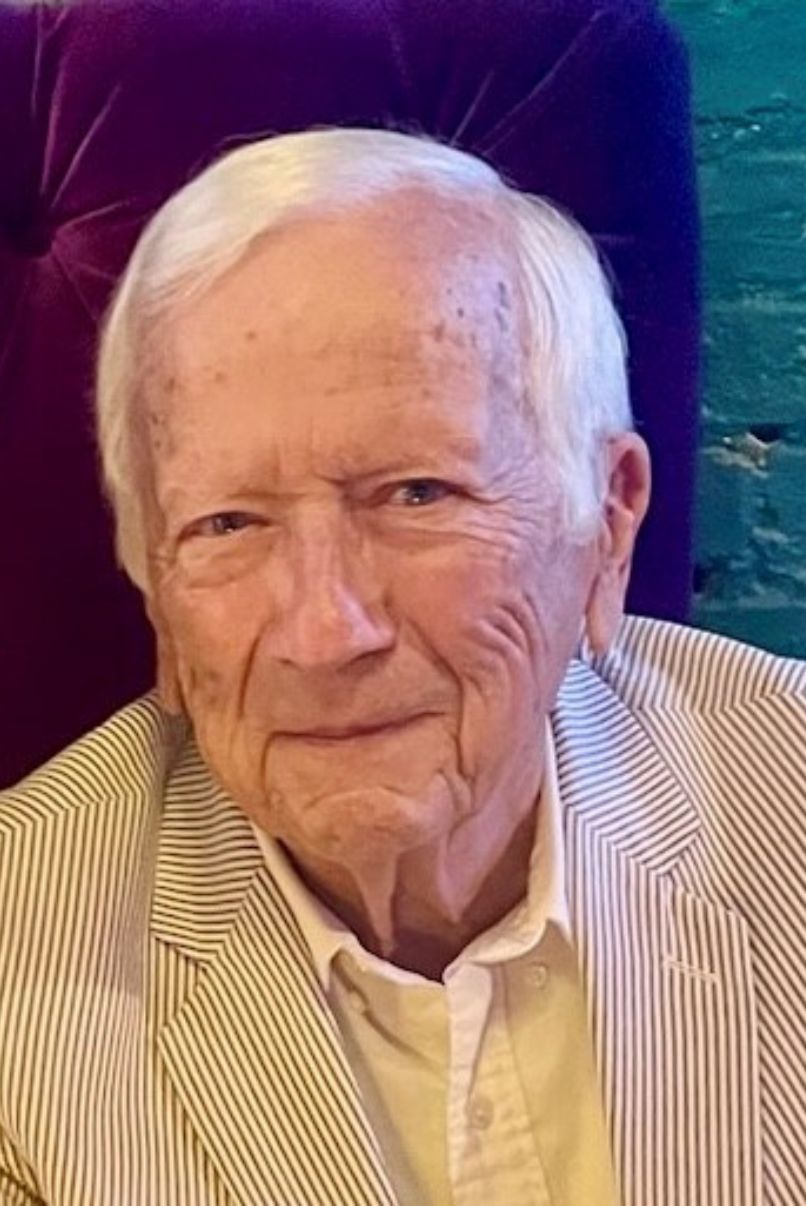
Fred Stanback
Fred Stanback’s ties to Duke are numerous and longstanding. He graduated from Duke with a degree in business administration in 1950, and is married to Duke alumna Alice Stanback. Fred and Alice are the proud parents of three Duke graduates and grandparents of three more.
Stanback earned his MBA at Columbia, and in 1952 joined the Stanback Company, a family-owned developer of headache powder, where he would spend his career before retiring as chairman and treasurer.
Throughout his life, Stanback has devoted himself to public service, philanthropy and environmental causes, with a particular focus on impactful initiatives in his home state of North Carolina. In 2008, he and Alice were awarded the North Carolina Award, the state’s highest civilian honor.
Stanback has been a dedicated supporter and advisor to many areas within Duke, including the Duke Cancer Center, Duke Marine Lab, and the Nicholas School of the Environment. He has also provided philanthropic support for environmental law and policy initiatives at Duke Law and Alzheimer’s research at Duke Health. In 2015, The Nicholas School of the Environment Deanship was named after Fred and Alice Stanback.
In 2020, the Duke Cancer Center presented Stanback with its William W. Shingleton Lifetime Achievement Award.
Beyond Duke, he established the Fred Stanback Jr. Ecological Preserve at Catawba College, a preserve that is managed by Catawba College and functions as a living classroom and laboratory.
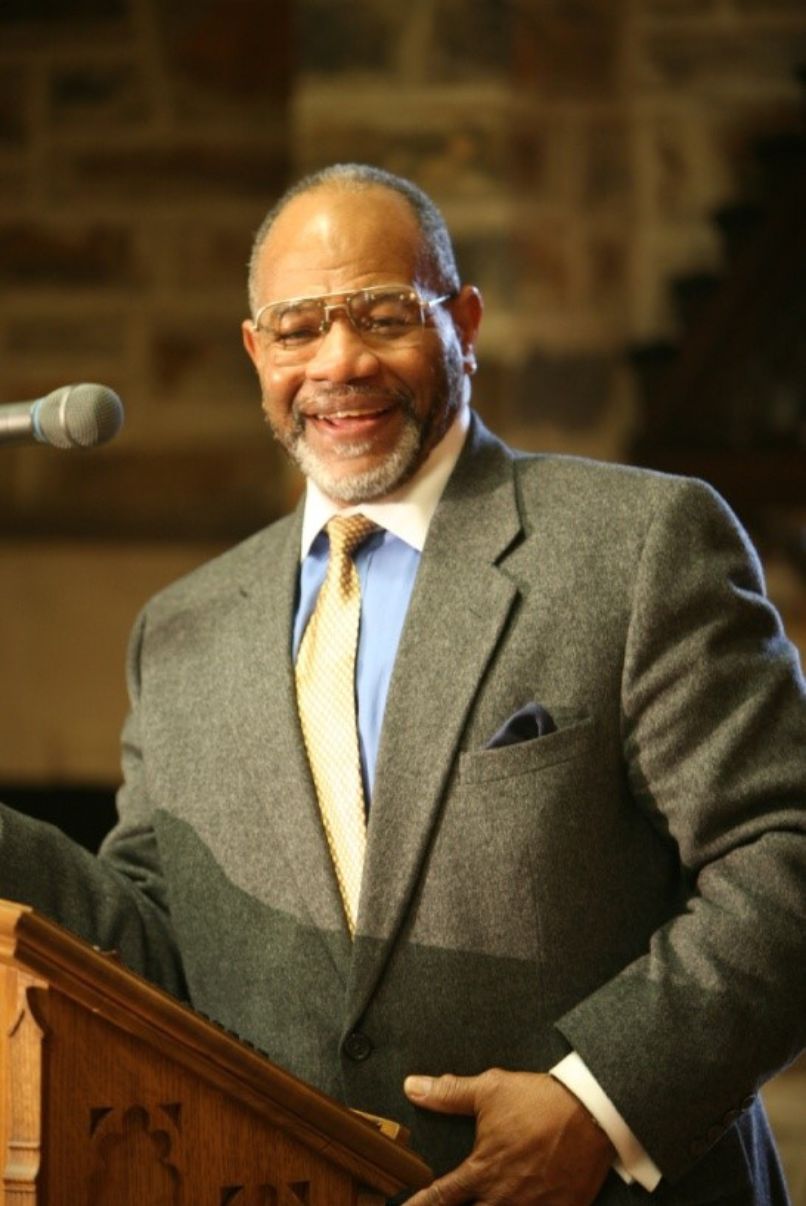
William Turner, Jr.
Since his days as a Duke student, when he made history in 1966 as one of the first two Black student-athletes to join the Duke football team, William “Bill” Turner, Jr. has been a prominent campus civil rights leader, advocate and educator dedicated to improving the experiences of Black students
On April 4, 1968, Turner learned of the assassination of civil rights icon Reverend Martin Luther King, Jr. while returning to his residence hall from a physics exam. In response, Duke students organized what became known as the Silent Vigil. In the coming days, Turner joined the more than 1,400 fellow students who camped in front of Duke Chapel as they advocated for more attention to issues affecting the Black community, including better pay for Duke’s hourly employees.
In total, Turner would spend more than 50 years at Duke, earning a bachelor’s degree in electrical engineering, master’s in divinity and doctorate in religion, and has served the university as assistant provost and Dean of Black Affairs, acting director of the African and African American Studies Department and director of the Office of Black Church Affairs.
Turner taught theology at Duke Divinity School and was the James T. and Alice Mead Cleland Professor of the Practice of Preaching at the time of his retirement in 2018. He is married to Joyce Rivers, and together they are the proud parents of four adult children and six grandchildren. Turner has served several churches in North Carolina, and continues to pastor The Mount Level Baptist Church in Durham.
Founders Day offers us the opportunity to celebrate the extraordinary contribution of the Duke family—which has laid the foundation for everything that has come since—as well as recognize those members of the university community whose contributions have received less recognition, or have come perhaps against greater odds.
